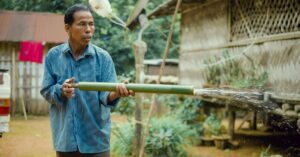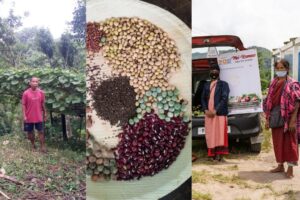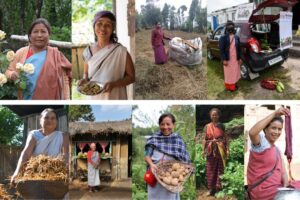On the 21st of April, 2022, four communities, namely Sasatgre, Mandalgre, Rongchadenggre and Masudigre came together for a seed exchange at Daribokgre, East Garo Hills, one of the model villages of NESFAS in Garo Hills. The programme is part of the project “Empowering indigenous communities through Agroecology Learning Circles (ALC) for resilient, integrated and innovative natural resource management” supported by MBDA and funded by WORLD BANK under the Community Led Landscape Management Project (CLLMP).
The programme started off with an introductory session in the village community hall, where seeds from the repository known as Community Seed Bank (CSB) were displayed. The importance of conserving indigenous seeds was highlighted by team members from NESFAS. The host village also gave valuable inputs on the significance of CSBs.
Climate change and global warming have greatly degraded the quality of life and continues to do so. The objectives of these Community Seed Banks is to conserve indigenous seeds, revive endangered species of plants, and bring about awareness surrounding organic and toxin free consumption of food.
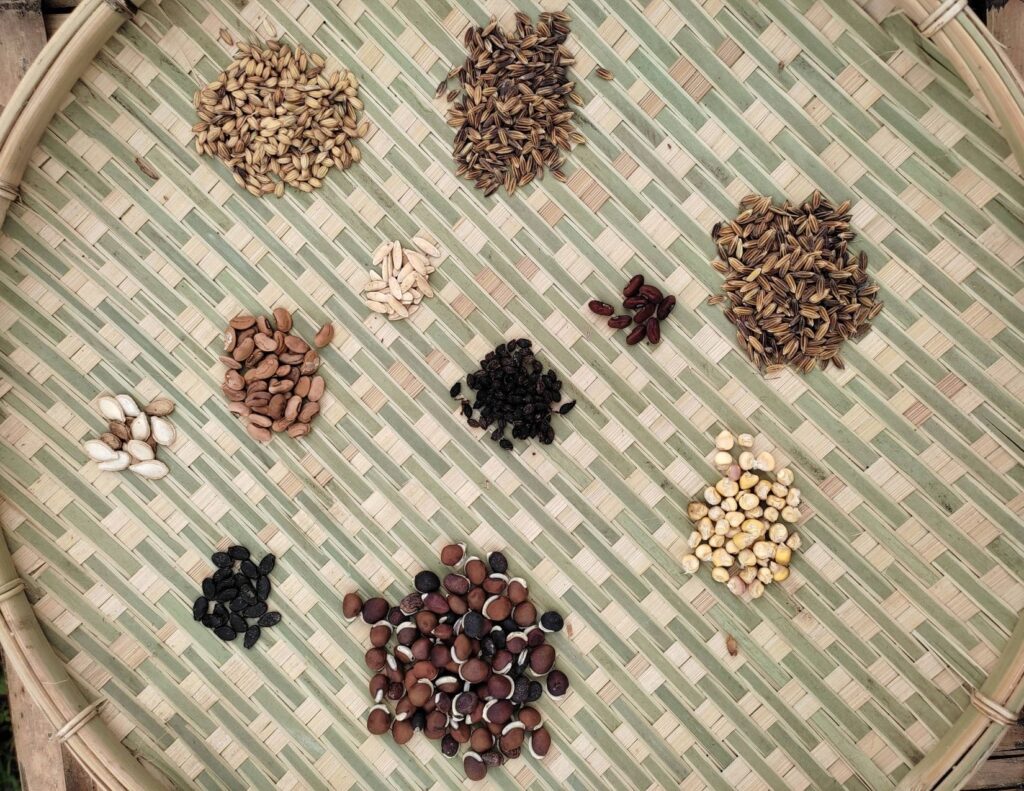
While hybrid seeds have brought about advantages like larger plant sizes and higher yield, it also comes with a lot of drawbacks like high-price, and more importantly, saving hybrid seeds is usually not a practical option. Conserving indigenous seeds, which can be sown, harvested, and collected for the next sowing season is a cost-effective method and is also a safe means of preserving one’s tradition. Going organic and sowing our own seed is a safer and much healthier option.
The community members of Rongchadenggre and Masudigre brought about 11 varieties of seeds found in their region and exchanged them with the farmers of other participating villages. Some of the varieties were papaya seeds (big variety), broad beans, cucumber, sticky rice, etc. They exchanged their seeds for other varieties of cucumber, black sesame seeds, corn, brinjal, pumpkin and many other types of vegetables.
The secretary of the Community Seed Bank in Daribokgre, Mrs Norina Ch Marak, stated that they had started off with this initiative in 2021 and therefore, it is also a new thing for them and at the moment, there are more than 30 varieties of seeds available. “We collect all types of seeds and are working towards reviving traditional seeds like heirlooms, and we will sow them like the generations before us, and will pass it down to the generations after us,” she said.
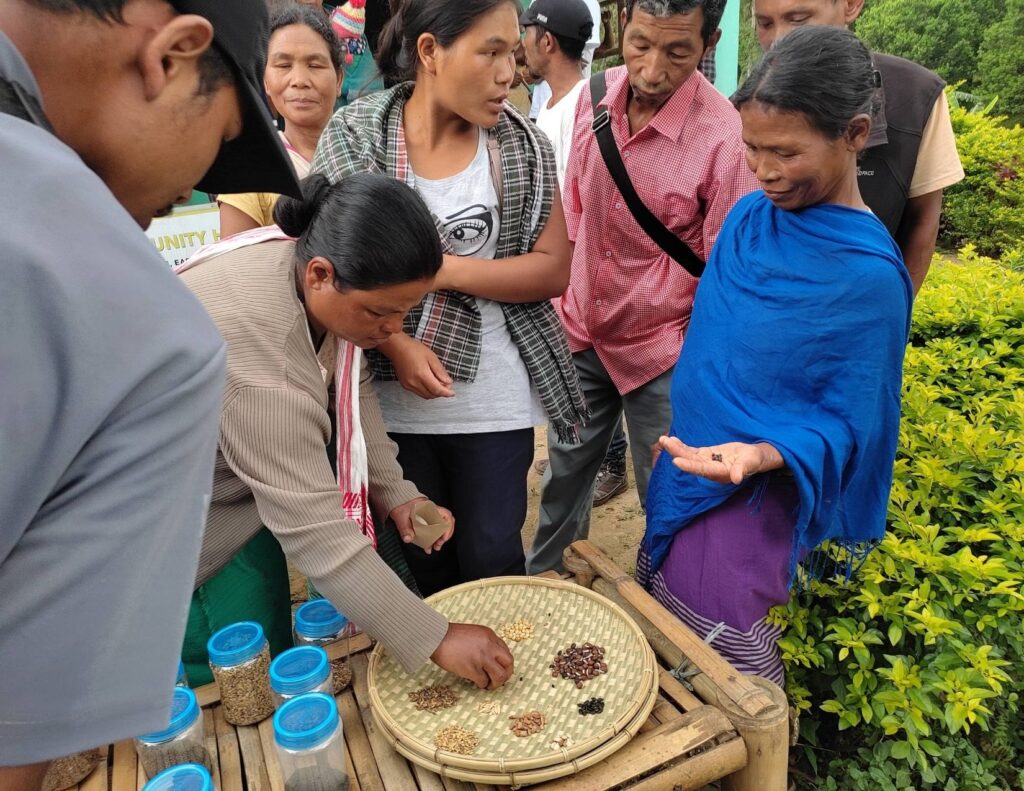
The visiting communities also had a tour of the CSB nursery. Different varieties of fruits and vegetables are being sown and planted therein, the saplings of which will be available for sale soon. Some of the varieties that are grown are chilies, tomatoes, citrus fruits, beans, papayas, etc. It may be mentioned that Daribokgre community is world famous for its citrus fruits. The region has even earned Geographical Indication (GI) tag for its citrus variety called Citrus indica, primitive species of citrus, commonly known as Me·mang Narang in Garo language. The community is also growing this species of citrus in their nursery along with about 15 other varieties of citrus both wild and domestic, attempting to educate people on the benefits of citrus fruits such as it being a rich source of Vitamin C, antidote against food poisoning, medicine against skin diseases and gastrointestinal problems.
Inspired by the visit, Mrs Pemmodini M Sangma, Community Facilitator of Mandalgre in East Garo Hills, was quoted as saying, “These initiatives are helpful in upholding our traditional practices. We have also been sowing indigenous seeds in our village, and we also plan to start our own Community Seed Bank soon”.
The future looks promising when it is our own community members who are leading in the front, taking big strides towards attaining sustainable goals. Launching community seed banks as a platform for seed exchange from farmer to farmer, community to community and for conservation of indigenous seeds may just be a drop in the ocean, but we can certainly hope that one day these drops shall flood over to the rest of the world.

